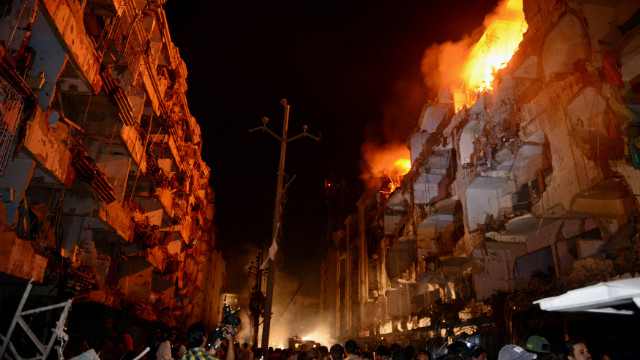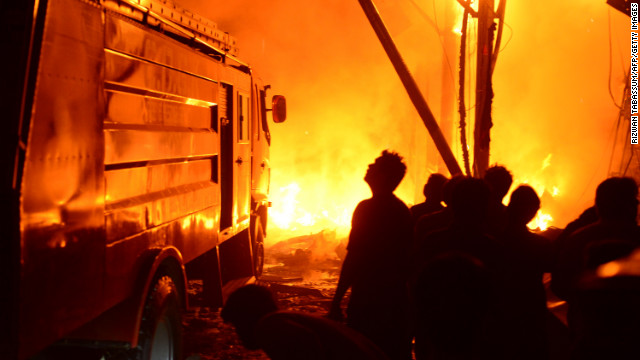- The blast apparently targeted Shiites in Karachi, police say
- Authorities say the toll could rise as rescue workers search the rubble
- Shiites have been the victims of dozens of sectarian attacks in the past year
Islamabad, Pakistan (CNN) -- No group has stepped forward so far to claim responsibility for a massive car bombing in the southern Pakistani city of Karachi that killed at least 42 people over the weekend in what appeared to be the latest attack on the Shiite minority in the country.
The blast Sunday tore into nearby buildings, wounding about 145 people, and authorities warned that the death toll could rise as rescue workers continued to search for bodies amid the rubble.
Caused by a vehicle loaded with about 150 kilograms (330 lbs) of explosives set to a timer, the explosion took place in Abbas Town, an area of Karachi where many Shiite Muslims live, police said.
In recent months, a number of large-scale bomb attacks have targeted Shiites, who are overwhelmingly outnumbered by Sunni Muslims in Pakistan.
A huge bombing last month in a Shiite neighborhood in the city of Quetta killed about 90 people and fueled outrage about authorities' failure to stem the attacks, many of which were claimed by the Sunni militant group Lashkar-e-Jhangvi.
Pakistani security forces responded by carrying out raids in the area in which four militants were killed and others arrested. But Sunday's attack in Karachi suggested they hadn't done enough to dissuade further attacks.
Amnesty International says it has documented 92 separate attacks on Shiites across Pakistan since January 2012 that have resulted in the deaths of more than 500 people. It has criticized what it says is the lack of prosecutions of those responsible for the violence.
Pakistan's Prime Minister Raja Pervez Ashraf and President Asif Ali Zardari both condemned the bombing Sunday.
Although many of the recent attacks against Shiites in Pakistan have focused on the Hazara ethnic group in Quetta, sectarian violence has struck Karachi previously.
In February 2010, for instance, at least 18 people died in blasts that took place near a bus full of Shiite religious observers and in front of a hospital in the city.
And in late 2009, a suicide bomb attack on a Shiite procession moving through Karachi killed at least 40 people.
CNN's Nasir Habib reported from Islamabad and Jethro Mullen wrote from Hong Kong
 A vehicle bomb explosion in Karachi, Pakistan's largest city, killed at least 42 people and wounded at least 145 others on Sunday, March 3, police said.
A vehicle bomb explosion in Karachi, Pakistan's largest city, killed at least 42 people and wounded at least 145 others on Sunday, March 3, police said.  Pakistani rescuers work at the blast site.
Pakistani rescuers work at the blast site. Rescuers roll an injured blast victim out on a stretcher.
Rescuers roll an injured blast victim out on a stretcher. A rescuer carries an injured man through the rubble.
A rescuer carries an injured man through the rubble. A stretcher is pushed through the site.
A stretcher is pushed through the site. Pakistani rescue workers and citizens go through the debris.
Pakistani rescue workers and citizens go through the debris. Firefighters try to extinguish the blaze.
Firefighters try to extinguish the blaze. Pakistani rescuers gather in front of the flames.
Pakistani rescuers gather in front of the flames.
Không có nhận xét nào:
Đăng nhận xét